Our archive has recently established a link with former members of the Wandsworth School Boys’ Choir – a choir with whom Britten and Pears worked on numerous occasions from 1966 onwards. We are delighted that former choir members are passing their memorabilia on to our archive – items which the choir boys kept and treasured for many years, along with their memories, and which give a lively and personal view of the important relationship between Britten, Pears and the choir.
Britten was first invited to Wandsworth School in February 1965 – to be Guest of Honour at Speech Day. He felt truly sorry not to be able to accept the invitation to speak to the boys, writing a note to his secretary at the top of the letter – ‘say, no very sorry I simply can’t do it – would like to have been associated with such a fine and distinguished school’.
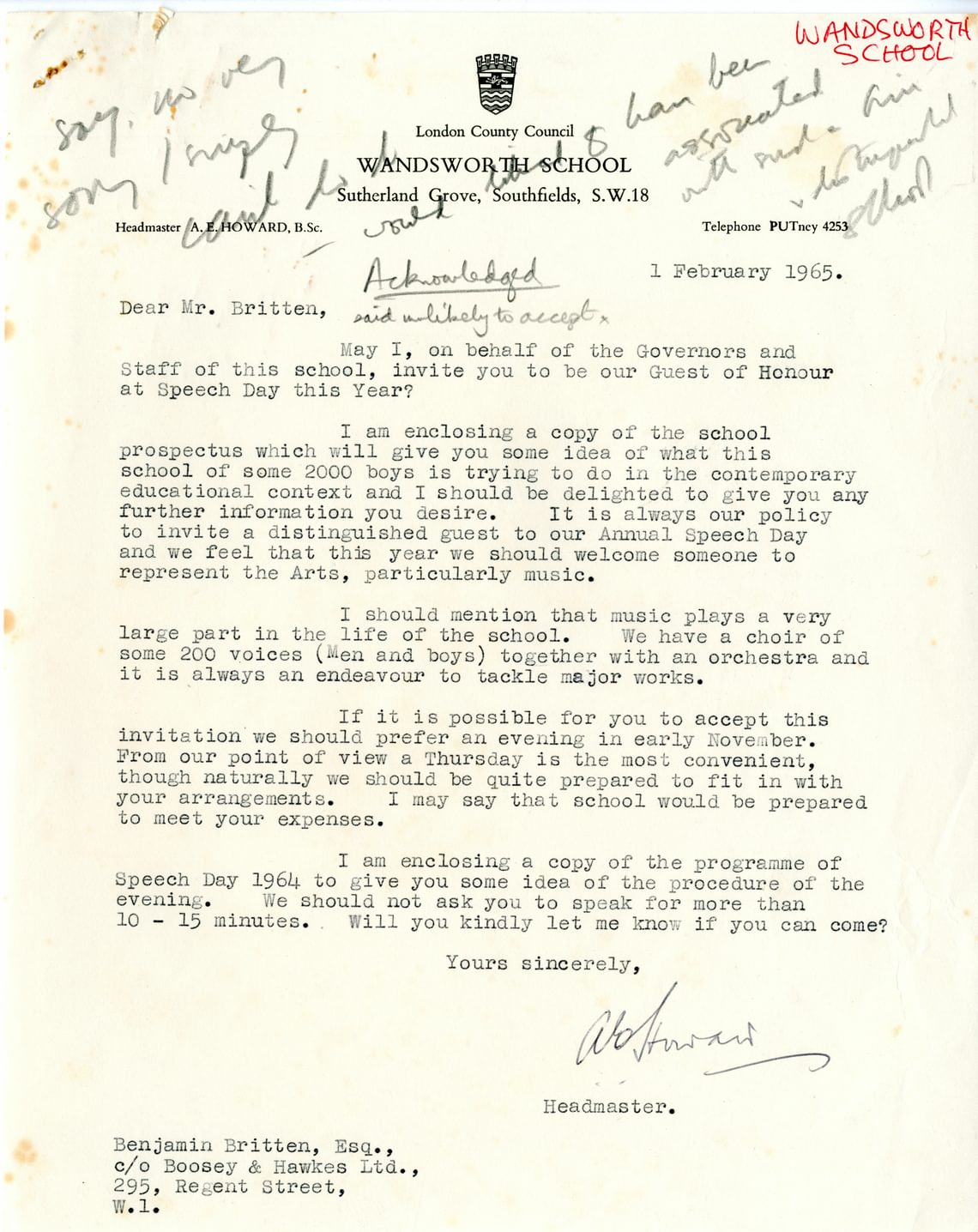
Letter from Wandsworth School to Britten, 1965
Wandsworth School was a comprehensive secondary school under the control of the Inner London Education Authority. It had a large choir with a maximum of about 230 members (trebles, altos, tenors and basses) including a few staff and former pupils to strengthen the changed voices of the older pupils. Director of Music Russell Burgess led and guided the choir with enthusiasm and determination. He raised the boys to such a standard that they were invited to take part in a performance of Carl Orff’s Carmina Burana with the New Philharmonia Orchestra and Chorus at the Royal Festival Hall in June 1965 – the first of many public appearances by the choir.
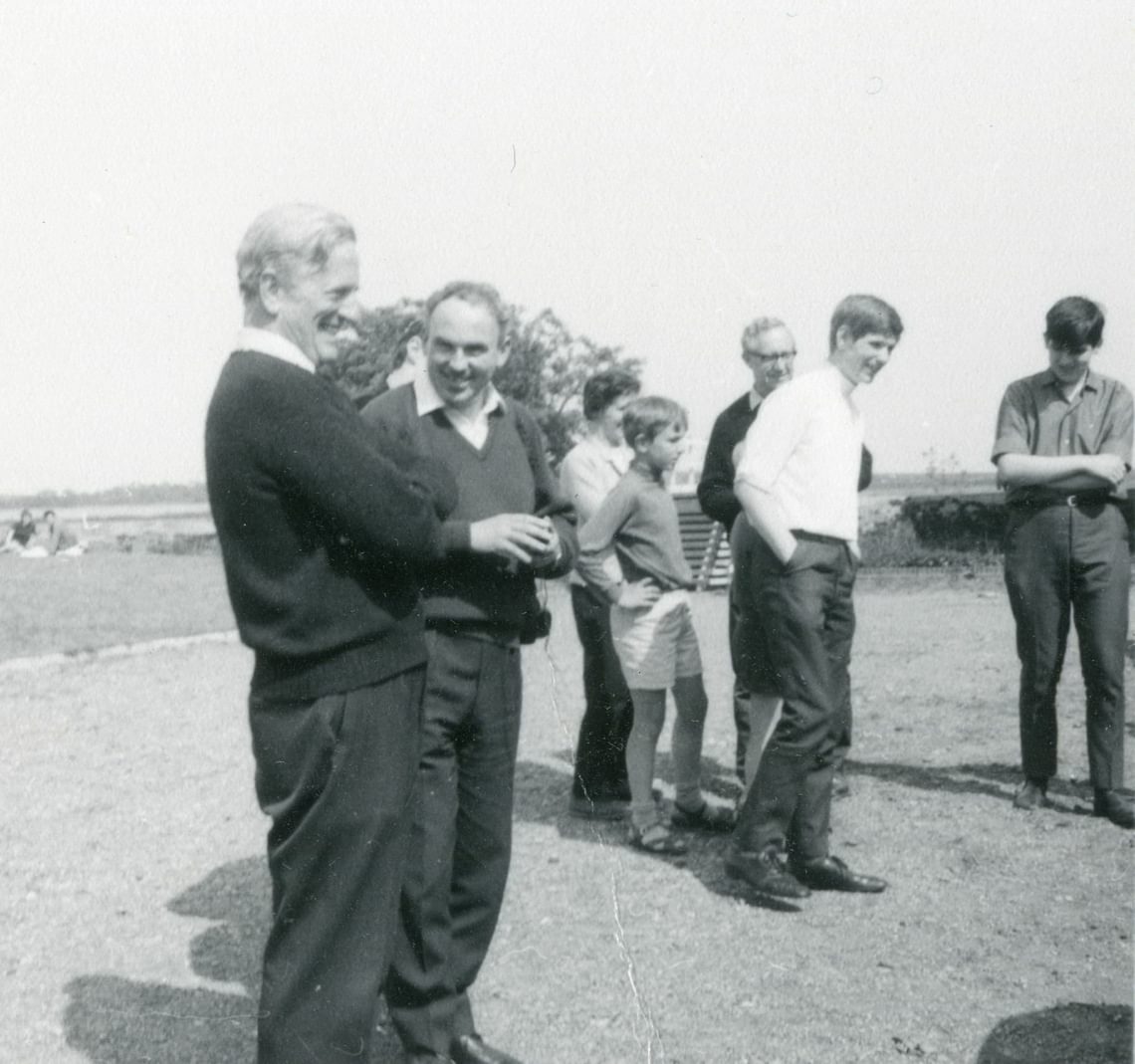
Pears with Burgess and Wandsworth boys at Snape, 1969
Credit: Rosamund StrodeIn October 1966 Pears performed Spring Symphony with the Wandsworth School Boys’ Choir at the Festival Hall with the London Symphony Orchestra and Chorus joined by fellow soloists Heather Harper and Janet Baker. Britten was in the audience – his pocket diary notes that he was taking the 8.40 train from Ipswich to Liverpool Street that morning. It was perhaps this performance that persuaded Britten that he really must work with the Wandsworth choir as six months later he himself conducted the boys in a performance of Spring Symphony again at the Festival Hall, this time with Pears, Harper and Helen Watts as soloists.
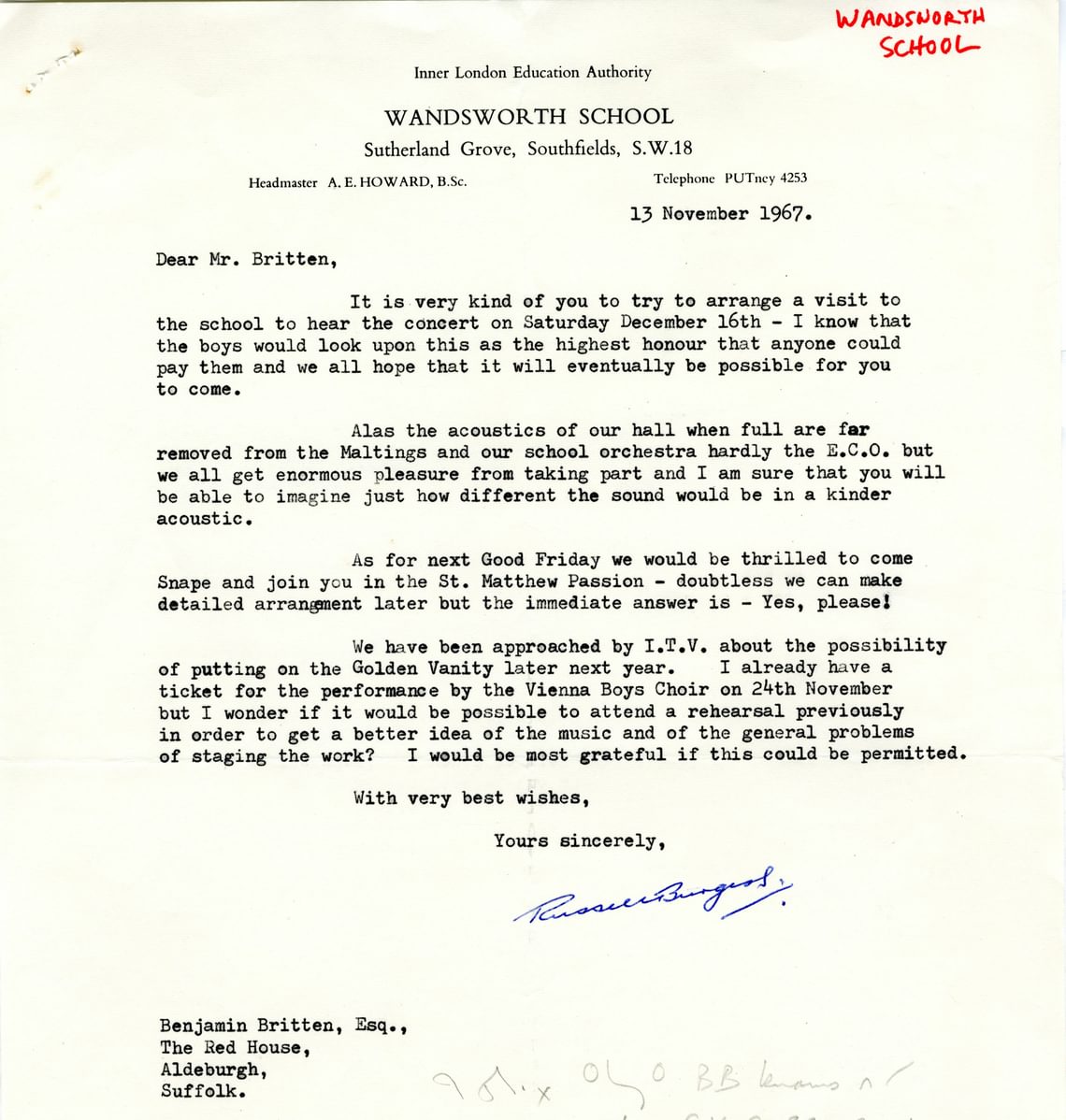
Letter from Burgess to Britten, 1967
Britten’s association with the boys’ choir had begun and when he was again invited to the school – to a performance of A Ceremony of Carols in December 1967 – he made sure he attended. Afterwards Britten wrote to his friend and publisher Donald Mitchell ‘I felt that the boys’ tone was worth it. He (Burgess) is obviously quite a chap’. This concert must have further persuaded Britten that the Wandsworth boys’ voices was the sound he wanted, as in 1968 when he was commissioned to write a piece to mark the 50th anniversary of the Save the Children Fund, he composed a work specifically for the choir.
This ballad for children’s voices and orchestra – Children's Crusade – tells of a wandering band of lost children in the first icy winter of WII. The Wandsworth school choir and orchestra gave the work its first performance at St Paul’s Cathedral in May 1969 conducted by Russell Burgess. The orchestra is a percussion band – percussionist James Blades helped in the planning and making of the percussion instruments played by the Wandsworth boys. This must have been quite an event for the school involving some 120 boys. Britten wrote to librettist William Plomer that ‘the boys (singing & hitting) made a tremendous impression of passion & sincerity alongside the asinine pomposity of the established church!’
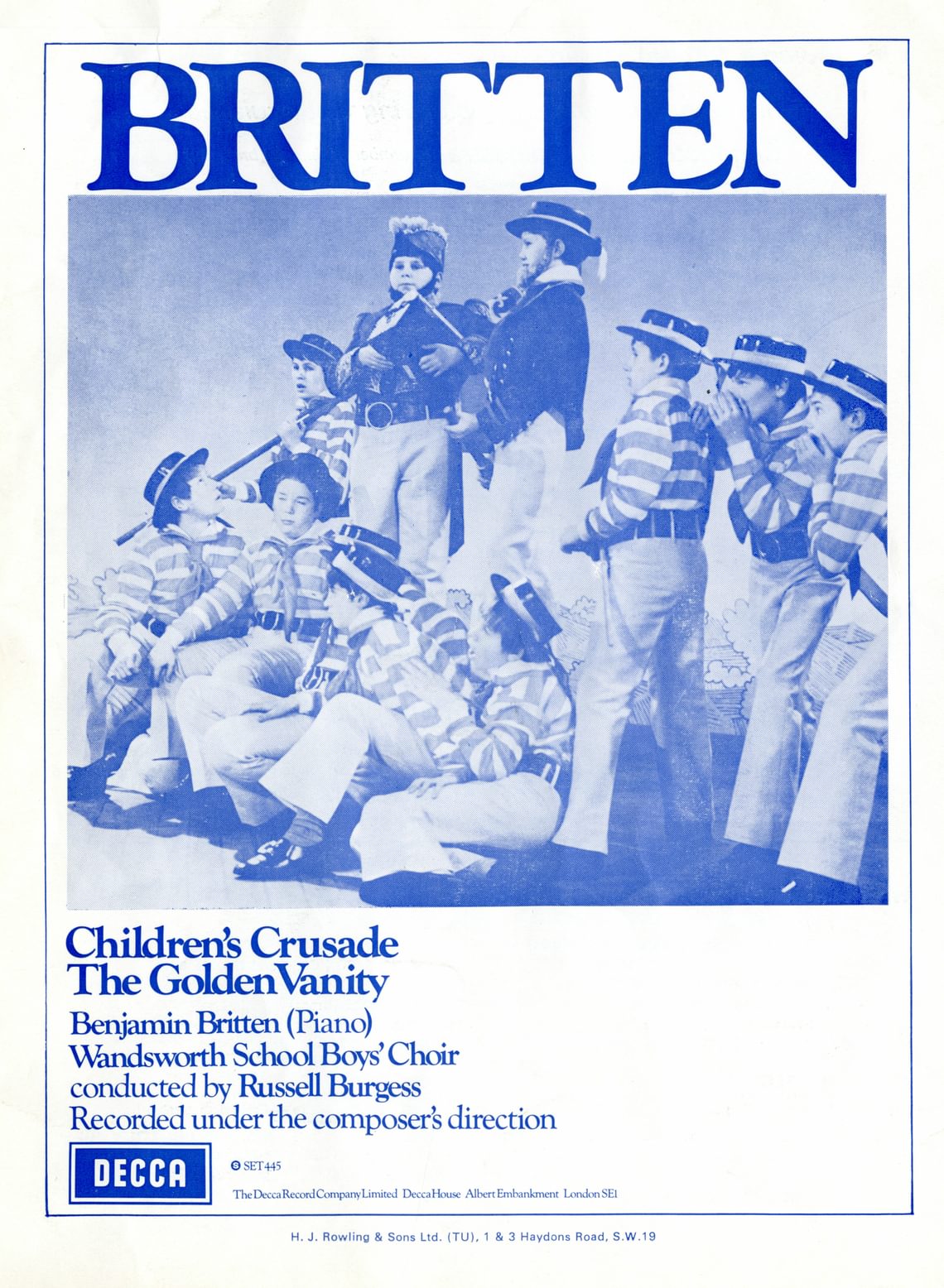
Advert for 1969 Decca recording
Britten was not the only composer who wrote for the choir. Between 1968 and 1971, the choir gave eleven first performances of works by composers including John Taverner, Peter Maxwell Davies, Gordon Crosse and Imogen Holst. Holst’s work – Gipsy Davy – is a folksong from the Southern Appalachian Mountains arranged as a ballad for unaccompanied chorus – a challenging work with ‘changes of time signature, difficult intervals, arresting harmonies and unpredictable dynamic contrasts’. The choir first performed the work at the 1970 Aldeburgh Festival in Snape Maltings Concert Hall conducted by Holst herself.
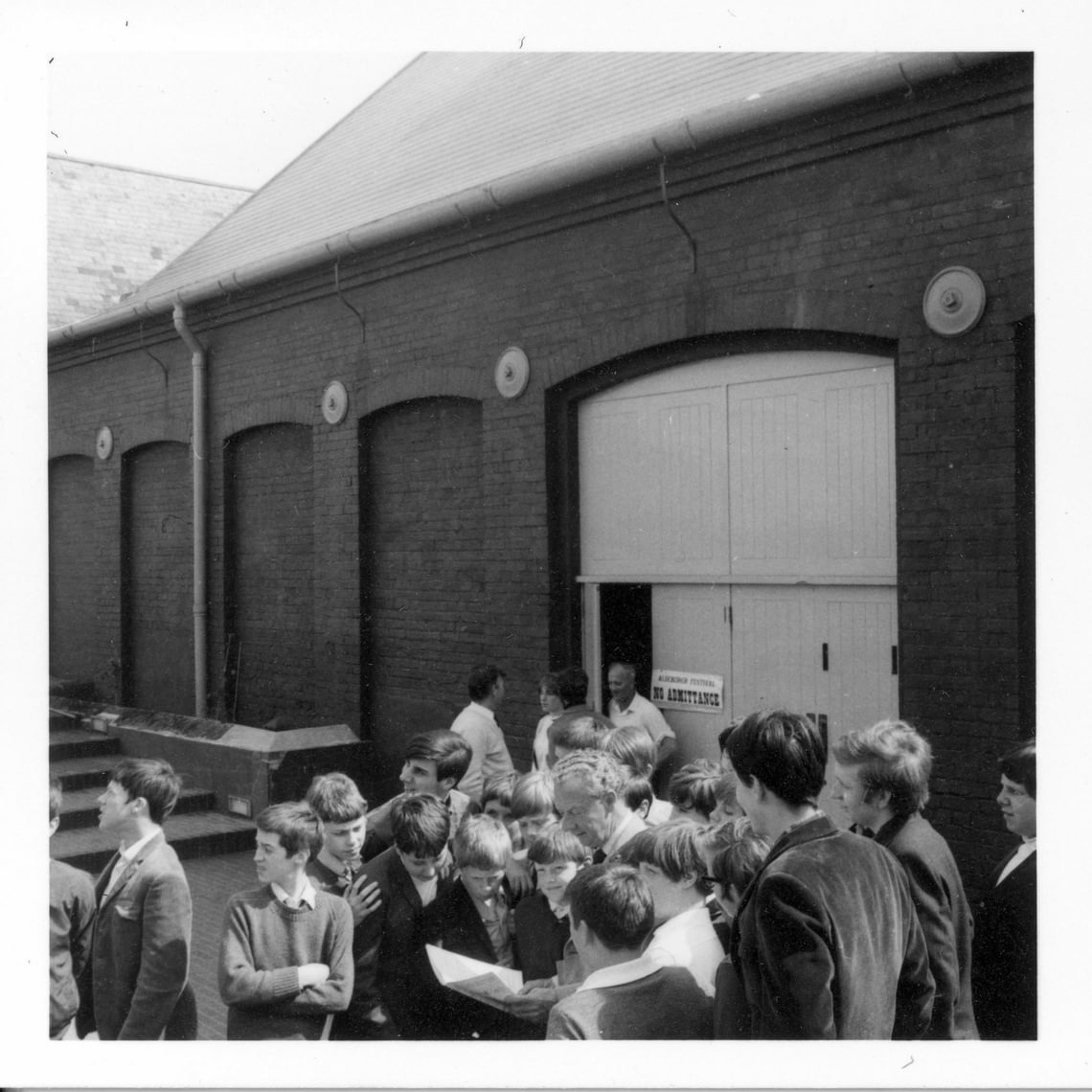
Britten with Wandsworth boys outside Snape Maltings Concert Hall, 1969
Credit: Rosamund StrodeBritten first invited the Wandsworth choir to Suffolk in April 1968 to sing in Bach’s St Matthew Passion at Snape Maltings Concert Hall. The choir frequently performed at the Aldeburgh Festival starting with The Golden Vanity and Children’s Crusade at the 1969 Festival – their concert being moved to Blythburgh Church after the Snape Maltings fire on the Festival’s opening night.
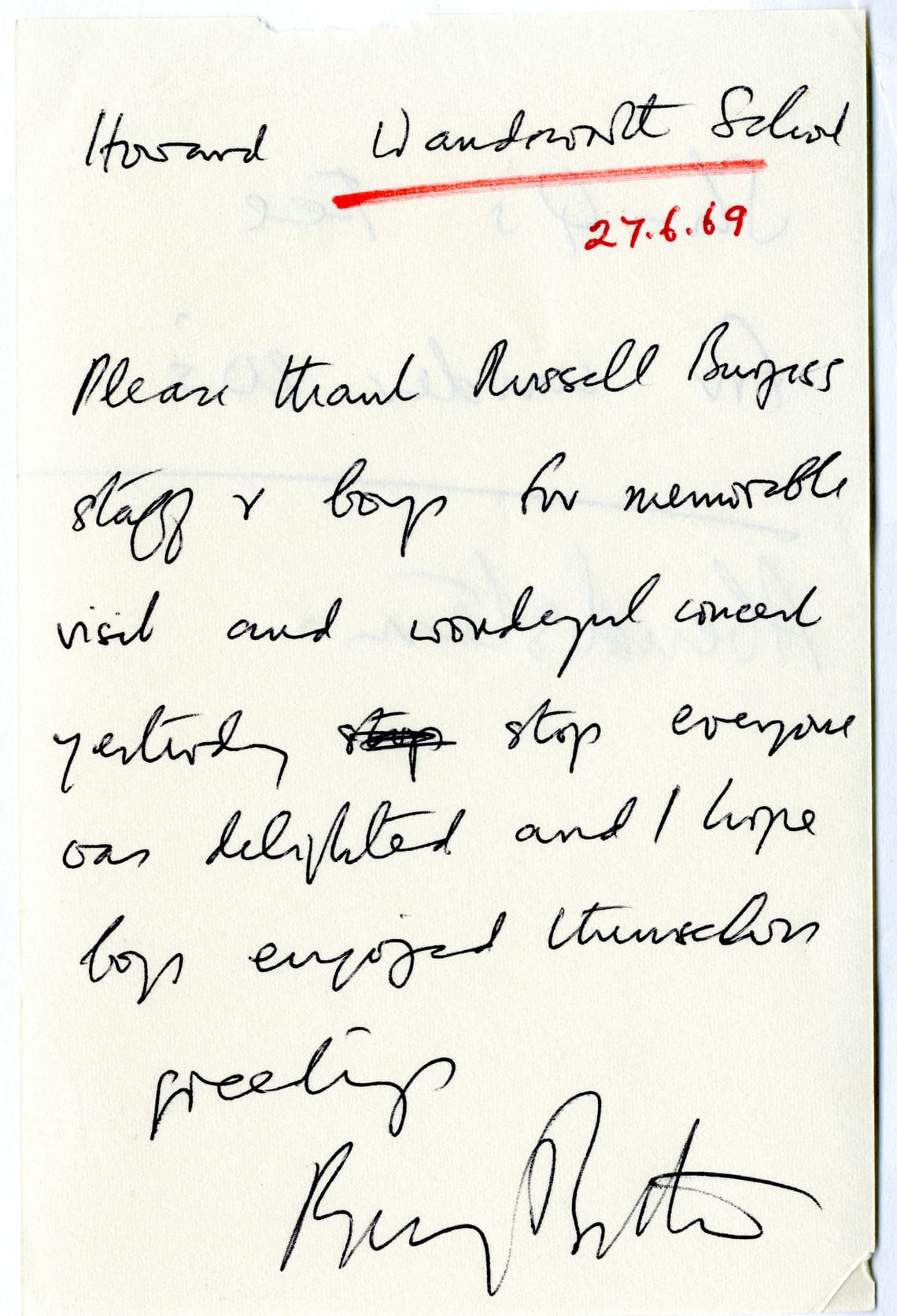
Britten’s draft telegram sent after the choir’s performance at the 1969 Aldeburgh Festival
Former choir boy Martin Saxby recollects ‘I remember a rehearsal for this with Britten in the barracks off Sloane Square – I had the terrifying privilege at one point of page turning for Britten as he played for us ... We travelled up to Snape a few days before the performance for a full rehearsal with Britten and Colin Graham. This included a memorable visit to the Red House, swimming in the pool, a practice in Britten’s library (complete with a quad speaker hi-fi system) and, for just four of us, an exhilarating journey along narrow twisting country lanes with Britten (me in the front seat) in his open top Alvis from the Red House to the Maltings.’
Choir boys in their costumes for The Golden Vanity playing in Blythburgh churchyard, 1969
Britten and the Wandsworth choir enjoyed a special relationship, with Britten giving the choir much encouragement, calling them ‘my favourite choir at my favourite school’. He enjoyed the rough unsophisticated earthy quality of the choir’s singing and the boys’ energy. The choir reciprocated Britten’s enthusiasm, writing in the programme for their May 1970 performance at Queen Elizabeth Hall ‘Despite the vast number of orchestras, recordings and broadcasts with which the boys have been associated, the honour which above all they cherish, is that Benjamin Britten should have wished to work with them so frequently’.
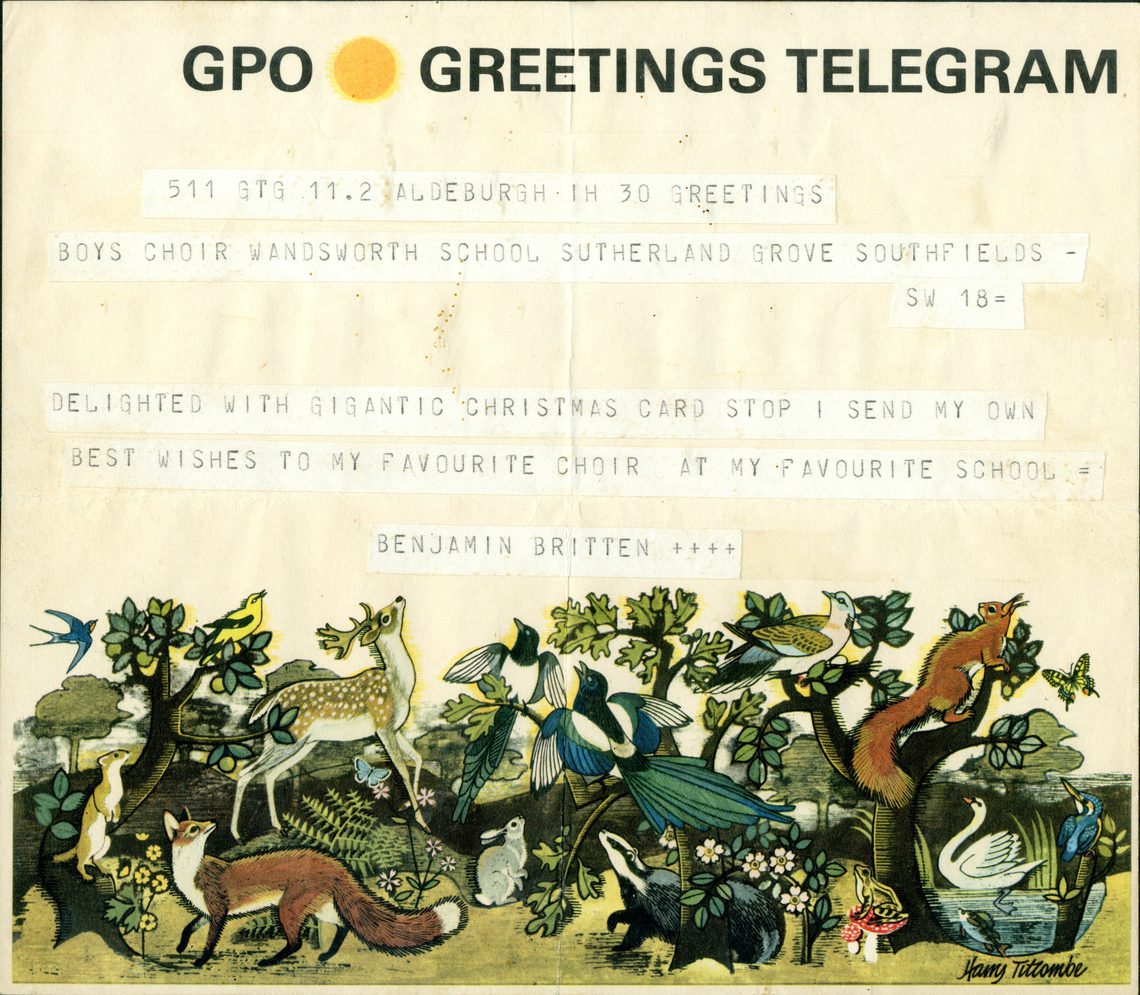
Telegram from Britten to the Boys’ Choir
The choir continued their busy but exciting schedule giving, as well as school concerts, many public performances with distinguished orchestras and conductors at venues such as the Royal Festival Hall, Queen Elizabeth Hall, Royal Albert Hall, Southwark Cathedral and Royal Opera House. They made important recordings including, with Britten, Decca recordings of The Golden Vanity, Children’s Crusade, Owen Wingrave, Billy Budd and Bach’s St John Passion.
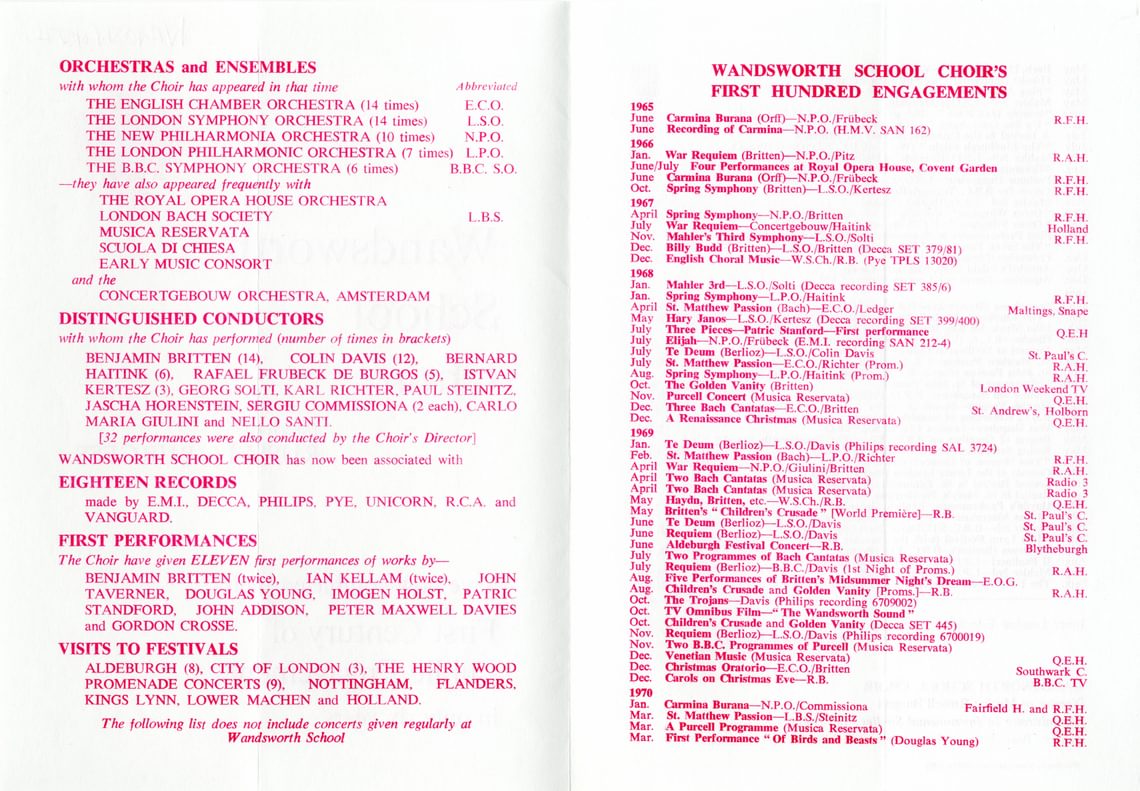
Leaflet from 1971 entitled ‘Wandsworth School Choir have now completed their First Century of Public Engagements in only six years’
Memorabilia deposited in our archive so far includes scores signed by Britten, programmes, photographs, record covers, press cuttings, a music prefect's badge, as well as oral histories and written reminiscences. These items emphasise just how important the choir was to Britten and his music, and they record the choir’s remarkable achievements. They also demonstrate the pleasure the boys got from their association with Britten and Suffolk as well as from singing. We are hoping to receive more items to add to this Wandsworth School Boys’ Choir collection.
Judith Ratcliffe, archivist
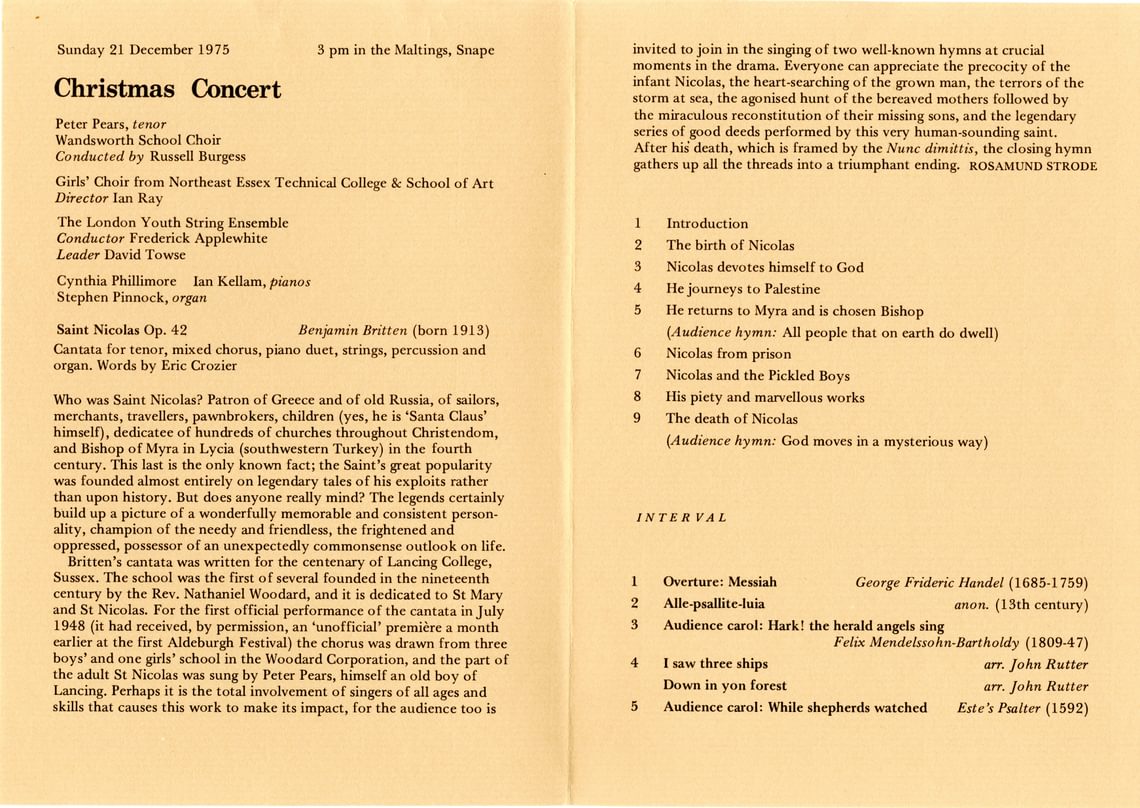
Programme for a concert at Snape Maltings with Peter Pears and the Wandsworth School Boys’ Choir, 1975
You might also like

Archive Treasures: The story of a Holocaust survivor and a musical legacy
We mark the 80th anniversary of the end of World War II, and of the liberation of the death camps with the story of a special…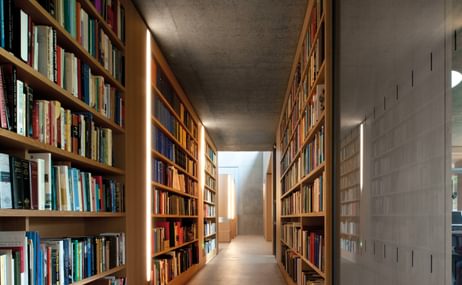
Archive Treasures: Armenian Amphora
Among the many treasures on display at the Red House is the splendid Armenian amphora. It dates from the Urartu era, a civilization which, from the…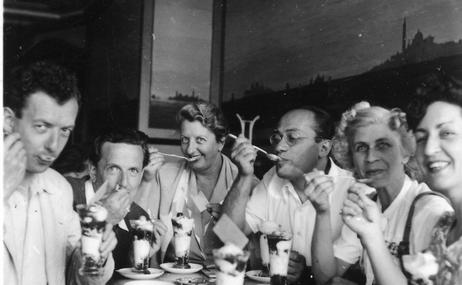
Archive Treasures: The English Opera Group
The English Opera Group collection forms part of the Britten Pears Arts Archive which documents the lives and work of Britten and Pears, as well as…